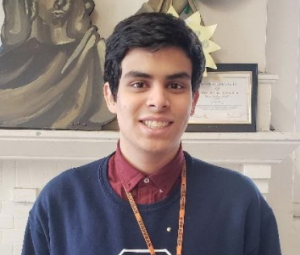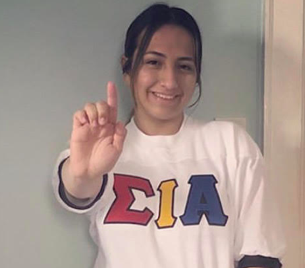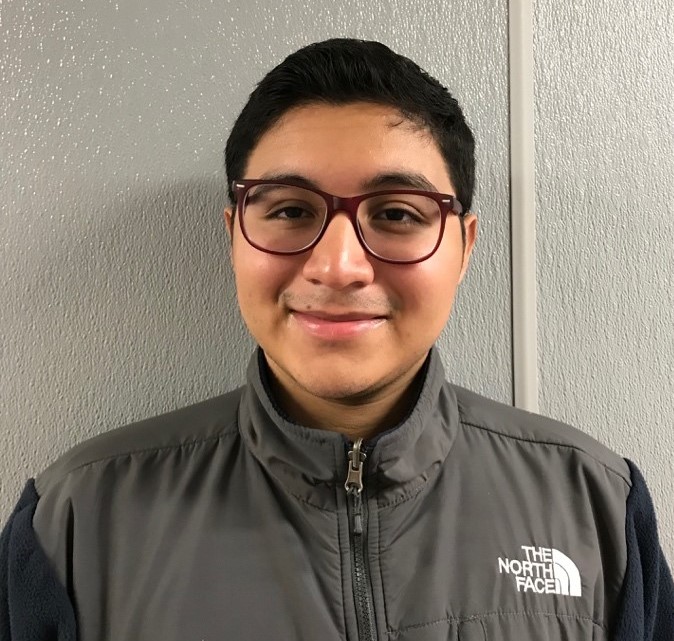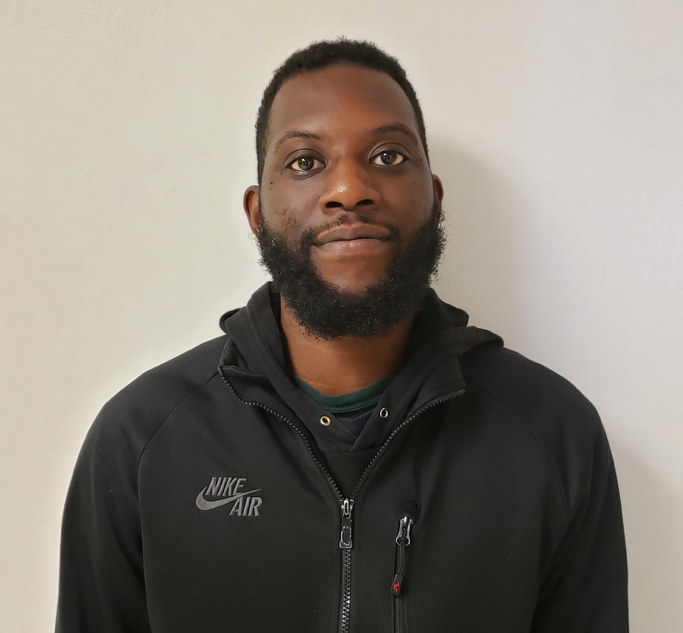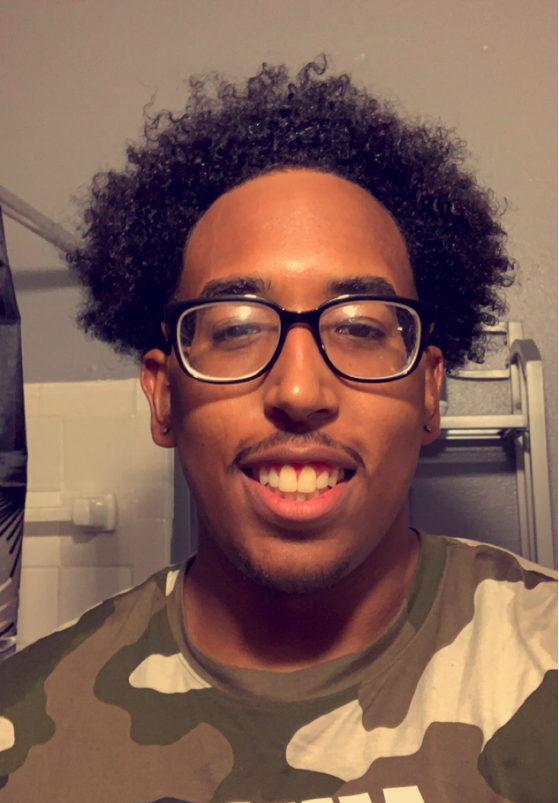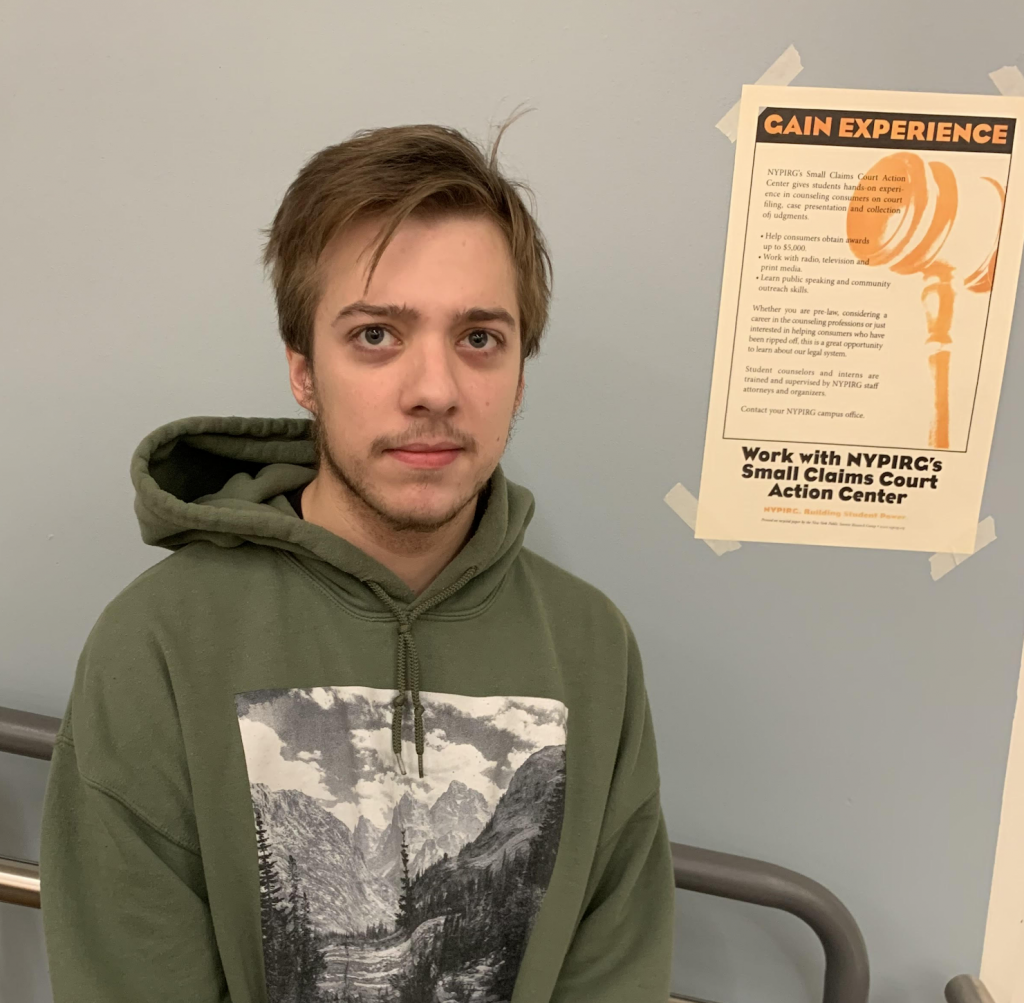Posts Tagged ‘Pell Grant’
I’m a junior majoring in Sociology. My future plans include graduate school to become a clinical therapist. I value all the resources available to be able to gain the skills necessary to further my career.
I am able to attend college through financial aid, including TAP and a Pell grant. I’m a first generation student, so furthering my education is more of a community achievement than anything else. Although I receive financial aid I have sought part-time employment to aid with my many expenses i.e food, bills, clothes, etc. I was unable, however, due to my heavy class load of 5 classes per semester. This class load is essential in order to receive the TAP and Pell grants which cap after four years.
A fully funded CUNY is fundamental to not only the success of thousands of students but the economy as a whole.


I’m currently a senior studying Psychology at SUNY Cortland. After graduation, I am going to attend graduate school and then begin a career as a school psychologist. In order to pay for school, I rely upon my own financial resources. My mother helps me, but I only receive a small amount of financial aid. I do not receive any grant money, like TAP or Pell, and I do not qualify for support programs that may assist me financially. When it comes to costs like textbooks and college fees, I pay for it out of pocket. I work regularly at a daycare center to pay for my food costs.
I love college; I love its structure, which encourages me to do well in school. But college students struggle enough already, and SUNY schools should be fully funded because not every student can afford the costs of higher education and that’s something they shouldn’t have to worry about. The biggest challenge for me was the COVID-19 pandemic. It’s made my senior year very difficult to enjoy. Outside of that, some other challenges include having an inadequate adviser, who didn’t recommend the right things that I should be doing as far as my academics. I love SUNY Cortland and I want to see the right changes happen here even after I graduate.


I’m a freshman at Syracuse University studying Economics, and I am originally from the Bronx, NY. I decided to attend Syracuse because of all the opportunities available to make connections and build skills for my life after I graduate. Most employers believe that a bachelor’s degree is the same as what a high school diploma is now, and that means we need to build up our resumes so much while also being full-time students. I’m blessed enough to be able to receive part of my costs paid for by private scholarships as well as Pell Grants and a TAP reward, but I’ve still been forced to take out thousands of dollars in loans per year. I still don’t understand why I was forced at 18 to make a decision about going into debt for the next three decades in order to attend the college I wanted to.
I was only able to afford textbooks and some of my personal costs for the past 2 semesters by working at a full-time internship over the summer, and even then I had to use my loan refund to pay for the rest in the Spring. Having to pay an additional $1000 for one year’s worth of textbooks wasn’t something that I was prepared for as an incoming Freshman, and I don’t know how other students who aren’t able to save as much can pay for them. Going forward, I’m extremely worried about cuts to financial aid programs such as TAP and the Pell Grant program because there is no way I’d be able to continue to attend Syracuse without that help. Even though we are a private school, Syracuse students rely on assistance from our state government to be able to afford an education and help out our families after we graduate, instead of taking out even more loans and going deeper into debt.


I’m currently a junior studying Sociology at SUNY Cortland. After graduation, I hope to attend graduate school near home and to find a part-time job. I receive scholarship help like TAP and Pell Grants. I support myself financially, so I work during my summers and during the school year to pay for textbooks and to pay for my food costs because I don’t receive any support for food like SNAP.
I am very thankful as a first-generation student to be able to go to college. College is still expensive even with all these financial aid grants, but everyday I work hard to be a better person and make my parents proud, so at the end of the day everything is worth it.
If SUNY were fully-funded, then students could focus on classes. Financial stability for some students can be very stressful which can impact how they do in school. One of the biggest challenges was adjusting to the distance from Cortland to my hometown and fitting in, since Cortland does not have a very big Latin community.


I am majoring in Liberal Arts at BMCC and this is my second year at the school. I have taken an interest in business and accounting and after I graduate I plan on pursuing an internship in those fields.
I am one of the many CUNY students who heavily relies on TAP and the Pell Grant to pay for school. I was also a part of BMCC’s College Discovery program which helped me pay for my textbooks. To provide for myself and assist my family, I work a part time job. My biggest challenge as a CUNY student has been not being able to make use of the resources we have, such as tutoring, because my work schedule would not allow it. My financial struggles have made it quite difficult to graduate on time.
As a working class student, I live with the fact that if it were not for federal assistance I would not be pursuing a college degree right now. Education is not a privilege, it is a right. If people are required to have a degree to make a decent living then education should be more accessible. Most CUNY students are working class students. CUNY deserves better funding so it can continue to provide, improve, and expand services like the childcare center. We deserve the right to an education and better future.


I am a senior at Queens College majoring in film studies and English. I love to analyze stories in books and movies so that informed my choice of major. I receive the Federal Pell Grant and TAP as part of my financial aid. I try to save some money by getting books from the library, but for textbooks, my bill can climb into the hundreds. Big science and anthropology textbooks have been the most expensive for my required classes. And often, when you get to major courses, they ask for books that are rare to find, and ordering them online takes a long time. Textbooks eat up a lot of my financial aid refund that I could use on living expenses.
One semester, I was late applying for aid through FAFSA. When I was finally able to apply, I accidently applied for the wrong year. As a result, I owed the College money when my registration appointment came, and I couldn’t register. I had to pay down my balance before I could create my class schedule for the next semester. With the help of my parents, I was able to do this, but I don’t know what would have happened if they weren’t there to help me. Mistakes happen, and someone’s education shouldn’t be put on hold as a result.
I feel that offices at my college could communicate more with students about problems with their accounts so that the students can fix the problems before it’s too late. This could be done through email or having more effective campus outreach. These offices could use more funding for these programs and resources to fix infrastructure issues all over the school. Social services on the campus could also be improved, and the course selection widened, especially for smaller majors.


I am majoring in law and paralegal studies at City Tech, and it is my 5th year. I want to go to law school after college and then run for the NY Senate, and you never know where else I may end up. I feel like the route taken by most politicians is going to law school and then end up being politically active.
Financial aid covers most of my costs, but I have to pay some out of pocket— approximately $500 to $1000. Before City Tech, I attended various universities, private and public, and saw how the financial aid system worked in those schools. It’s when I got to City Tech that I saw the deficiencies in the system.
I receive TAP and Pell, and it’s not enough to cover my tuition costs, and my parents don’t have the money necessary to adequately fund my higher education. I have three other siblings that are attending college and one that is in 12th grade, looking at colleges now.
I have to go on a deferred payment plan and have been dropped from a course because I didn’t have the money to pay on time. You only have the week from the start of the semester to apply for the deferred payment plan, and if you miss that, you have to pay the amount in full. I was lucky that I called the financial office and asked if there was an alternative to paying all at once.
How do other students find out about this if one has to call to find out about these alternative options? I personally told a number of students that the deferred payment plan was an option, instead of dropping out all together and losing a semester of coursework. They were not aware of this.
Financial aid usually pays for textbooks, but I have to pay out of pocket before the money comes in, which is usually the mid-point, or at the end of the semester. My parents pay for food. If I didn’t receive financial aid, it would be nearly impossible for me to go to school. I am concerned about graduating on time, especially since they’ve said I exhausted my financial aid.
We need a fully funded CUNY, so more people who don’t currently have access to higher education are able to gain access and not be held back socially or economically. That should be the goal. Prospective college students should only have to focus on their schoolwork, instead of on how they will be able to pay for their next semester of college.


I am a senior at SUNY New Paltz majoring in communication disorders with a minor in deaf studies. After college, I intend on pursuing a career as an audiologist. I am currently employed as a cashier at the Student Union Building, and I also do catering for on-campus events.
Working on campus is the only way I can ensure that I will stay enrolled in school. I have always had to work in order to manage my expenses, especially school fees that were mandatory for me to pay out-of-pocket in order to stay in school. I have come really close to being kicked out of school because my financial aid was not enough to cover all of the costs. Thankfully, I was able to use the money I received from my campus jobs to pay off any remaining amounts.
I receive both TAP and Pell Grants, but that is not enough. I had to increase my unsubsidized loans for it to cover tuition and room and board. I could only get approval to increase my unsubsidized loan if my Parent Plus loan was denied.
I am an Educational Opportunity Student (EOP), and this program has helped me cover the majority of the costs for school. Without EOP, I’m not sure if I would still be in college. This program has been a great help for me from the beginning.


I am a junior at SUNY New Paltz, studying sociology with a concentration in criminology and a minor in communications. On campus I have been a student assistant at the Sweets N’ Treats bakery and a student chef at Peregrine Dining Hall. Working at these locations provided help with finances and helped me buy food because after a while campus food gets old. Working on campus also helped me pay off the money that I owed to the school because financial aid couldn’t cover all of my tuition and fees even though I receive the maximum amount for the TAP and Pell Grants.
I am very grateful to be a part of the Educational Opportunity Program (EOP). EOP has helped me in tons of ways. First, in terms of financial aid, they provide up to $1,400 towards financial aid. Although it does help, it still did not cover all of my financial needs for the semesters. Sometimes towards the end, the program receives leftover money from schools in order to help fund the missing amount from a student’s financial aid.
EOP has helped guide me through the criteria of college by giving me an idea of what to expect from classes, especially since it was a big transition from high school. EOP has also helped me in the process of deciding what major was best for me, and the program provided connections in order for me to succeed. Those resources are even there for me when the semester hits and anxiety and stress takes over my body.
I have been facing problems with financial aid since I started school. I was never told that the amount of financial aid you receive depends on the amount of credits you earn in a year. One semester during freshman year I took 12 credits instead of 15, and you need 30 credits to be considered a sophomore. At the beginning of my sophomore semester, I had to take about a thousand dollars out-of-pocket in order to pay off the school since my financial aid didn’t cover all of my bill. And with loans, I’m not allowed to take out a certain amount of money because I didn’t qualify to be a sophomore that year. I was too scared to take out another loan (the Parent Plus loan).
It’s really hard to pay that amount because $1,000 isn’t pocket change, especially since I come from a family that relies on an insignificant income. I had to rely on the funds that I earned from working at the on-campus job that I had. This year I was faced with taking out the Parent Plus loan, and I ended up doing it. A lot of my friends dropped out because they couldn’t pay the amount that they owed to the school.


I grew up mostly in upstate New York. I went to Lyons High School in Lyons, NY, which is a really small school; my graduating class was about 60 people. My career goal is to become a software developer or programmer—something along those lines—and I am taking computer science classes here at Buffalo State.
I transferred to Buffalo State from Finger Lakes Community College, which was a two-year school, and Buffalo State was one of the less expensive options for four-year colleges.
Last semester was my first semester here in Buffalo. Because my family is recognized as being in need, I get financial aid of like all stripes. I get Pell Grants and would have gotten Perkins if they hadn’t done away with that. I get TAP and Excelsior. Despite all of that—which sounds like a lot, but it’s not—there’s still money that I have to pay out-of-pocket even though my family really can’t afford it.
At Finger Lakes there were three professors that got together and wrote their own book, and that helped with textbook costs there. This semester, most of my textbooks, like three of them were under $20, but one of them was $150. It was one for my information systems class, and there was another I had that was like $90, and it was just to access an online version.
If I could just focus full-time on schoolwork I would do that, but I need money to pay for textbooks and living expenses beyond what’s covered by financial aid, so I am looking for a job.



